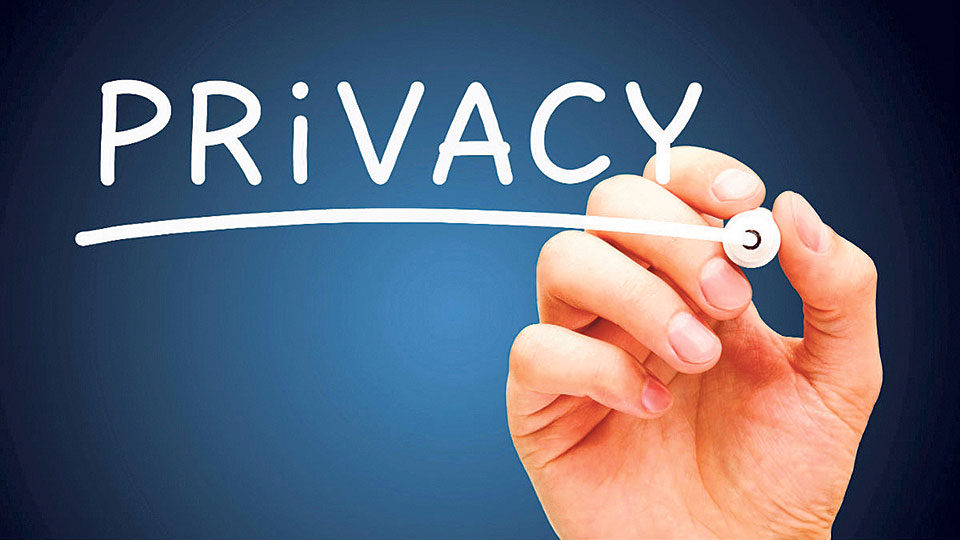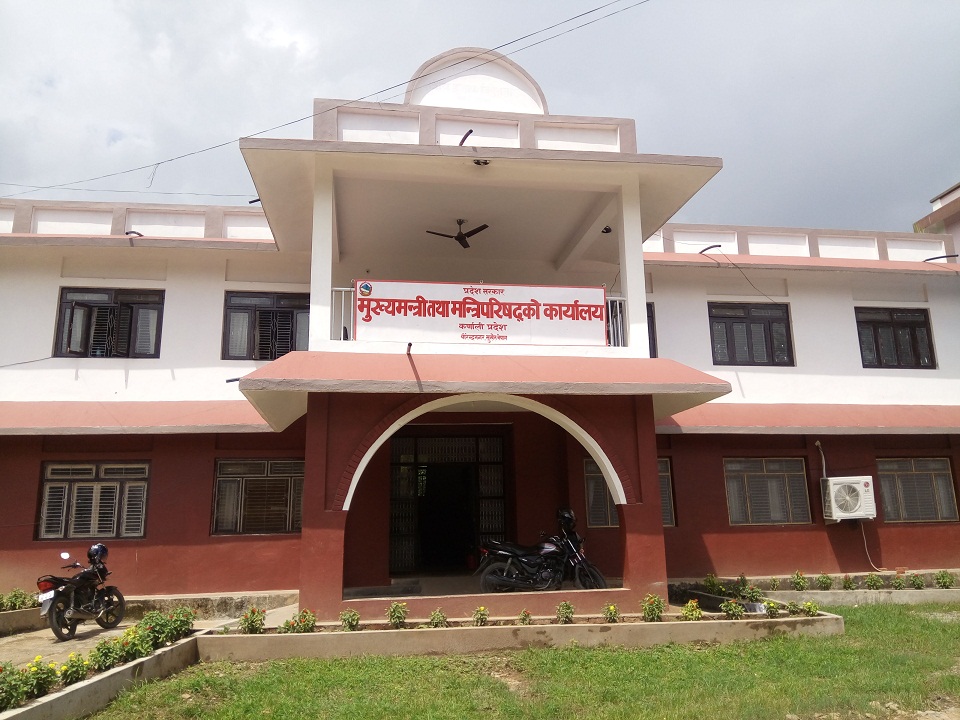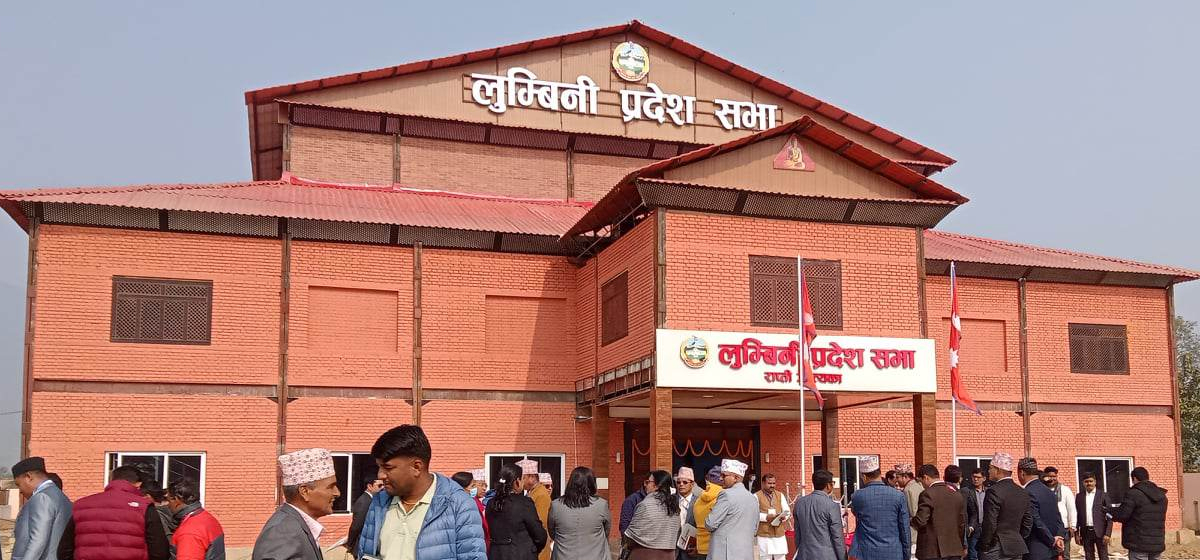
OR

More from Author
Individual’s right to refuse medical treatment or terminate his life and opt for euthanasia falls within the ambit of right to privacy. Individual’s Right to Privacy Act is silent on this matter.
The expanding growth of information technology with its ability to gather, analyze and disseminate data has raised the sense of urgency for enactment of laws on privacy in many countries. The parliament of Nepal enacted Individual’s Right to Privacy Act (2018) to implement Article 28 of the Constitution which guarantees every person the right to privacy in relation to the person, and his residence, property, documents, records, statistics, correspondence or reputation.
The Act casts an obligation on the state to ensure every person’s right to privacy over his/her physical or mental conditions. Section 3 explicitly and authoritatively obligates the state to provide an atmosphere under which a person could secure privacy over his/her body, health conditions, sexual orientation, reputation or medical conditions, biological conditions, virginity, potency, consensual affair, pregnancy etc.
Likewise, a person is also conferred with the right to establish matrimonial bonding or maintain sanctity of his/her family. However, the matters regarding court cases or family disputes arising between husband and wife may not be secured under the clouds of privacy. A woman, save for minor, insane or expert regarding the motherhood or health conditions, shall have the right to maintain privacy over her pregnancy, says Section 6.
It’s often said that rights and restrictions do not have an independent existence. This Act is not an exception to this long-stayed legal notion.
Clause (5) of Section 3 places a restriction on this sacrosanct right. The law confers powers on the state as a whole to publicize the matters associated with the investigation or charge labeled against the accused. Nonetheless, this clause doesn’t go without any restriction. A person’s right to privacy in relation to gender identity, virginity, consensual affairs, pregnancy, or bodily injury could be inviolable in case s/he has been given some special privilege by an authority concerned. Also, the fixing of CCTV camera in other’s residence, toilets or private places is outlawed.
The wheel of right to privacy seems to be rolling in different directions. The police action during the probe into a case or the necessary action to marshal the evidence and trace the offender shall not necessarily be perceived as intrusion of privacy (Section 5). The Act has as many as 12 chapters which aim to secure privacy in regards to body, residence, biometrics, property, documents, statistics, letters and communication, character, electronic means or personal information.
While the constitution under Article 25 guarantees right to property as a fundamental right, the Act endeavors to secure right to privacy in matters relating to property or assets. It outlaws trespass, or disclosure of information regarding property details by a bureaucrat without the consent of owner. Still, it would be lawful for an officer to hold search and seizure of a property to give effect to legal notice or orders of a court. The law also intends to secure privacy over documents, like bank accounts, bonds or employees’ provident fund, letters, emails or other forms of communication. Section 15 prohibits an act or omission that tends to damage someone’s reputation.
We are witnessing popularity and growth of CCTV camera and other electronic appliances. In the light of transformative changes we live through and the medium of communication we adopt, it is imperative to take a holistic regime for recording, preserving, handling and sharing of data so that the protection of data and protection of privacy could be given due importance.
Chapter 9 of the Act recognizes privacy under the fundamental freedom as an essential deterrent against intrusion into personal space and data by state and private actors in technologically advanced society. The law authorizes the security apparatus or the investigation agency to intercept, monitor and decrypt any information generated, transmitted, received or stored in computer resources.
Grey areas
Section 19(4) is a non-obstinate clause which empowers the officers so authorized to intercept, monitor, record or transmit any electronic message or data. But, this clause could have a serious impact. An individual may not know if his/her electronic communications are being monitored. This can make surveillance provisions prone to misuse. The drafters could have offered some tangible evidence or reasonable basis to initiate or seek approval for interception by the authority. Also, the legislation fails to initiate a debate on the how, when and what kind of surveillance on cyberspace is the need of hour.
With this kind of cart before the horse approach, the state may turn into a police state where the government officials would have access to information of every citizen.
Hacking of ATM machines in Kathmandu was reported last year and this breach has caused huge loss to the banks. So, the rules for the digital evidence collection could be specific to technological applications and there could be no applicability of general rule for exceptional use of an exceptional technological application. Similarly, right to privacy includes right to refuse food or even medication. And individual’s right to refuse medical treatment or terminate his life and opt for euthanasia falls within the ambit of right to privacy. This Act is silent on these matters.
The companies might sell the data of subscribers to the third parties. This is the reason why most of us receive emails or text messages on phones advertising a variety of products which are, at times, so foreign to our consumption patterns. Arguably, right to privacy includes right to receive or reject something. The unwarranted message from unknown companies is infringement on privacy. This law does not address this issue as well.
The extensive use of cyberspace but with poor internet literacy and lack of knowledge about digital hygiene is itself a challenge for us. Facebook and other social media know about our whereabouts, the places we roam, the decisions we make or friends we make. The law sets out imprisonment for a term up to three years; or fine of up to 30,000; or both at the instance of violation of the provisions enshrined therein. Yet, the compliance of this legal mandate is an uphill task in country like Nepal where everyone is much concerned with political democracy and least bothered with cyber democracy.
Foreign precedents
Internationally, right to privacy—be it a part of fundamental rights or not—is considered as an essential ingredient of personal liberty. The US Supreme Court in Jane Roe v Henry Wade observed that a citizen has a right to safeguard privacy of his own family, marriage, procreation, motherhood, child bearing, and education among others. It is a right to be left alone.
The US Supreme Court further held that the roots of right of privacy may be found in (US Constitution’s) First Amendment, in the Fourth Amendment and Fifth Amendment, in penumbras of bill of rights, the Ninth Amendment and in the concept of liberty guaranteed by first section of the XIV Amendment and that the “right to privacy is not absolute.” This case is globally regarded as landmark which ruled that right to have abortion is a part of fundamental constitutional right of privacy of the woman.
Article 17 of International Covenant on Civil and Political Rights (ICCPR), 1966, provides for right to privacy with regard to family or correspondence and this provision does not go counter to Article 28 of our constitution. Article 12 of the Universal Declaration on Human Rights (UDHR), 1948, is almost in similar terms. Through this, Nepal is committed to protect privacy in wider amplitude ranging from privacy in regards to home, biometrics, sexual orientation, personal data, medical examination or faith. In this respect, Nepal’s legislation is more progressive than international covenants.
In England, right to privacy is subject to the limits of law and its stratum is determined according to the facts and circumstances of every case. The Indian constitution, though, does not expressly provide for right to privacy, it’s an integral part of right to life and personal liberty clause enshrined under Article 21, held by the Supreme Court of India in 2017 in the landmark case of Justice KS Puttaswamy v Union of India.
This right is not a new recipe for us. The repealed Muluki Ain and latest Country Criminal Procedure Code (2018) are designed to conduct house search and seizure in a specified manner which supplants right to privacy.
Way ahead
Nepal deserves to sanctify domestic life by cherishing right to privacy and considering it as an inherent part of right to life and liberty clause embedded in the constitution. It must not be curtailed by fresh law on Information and Technology. Every state action should be based upon a legislative mandate which serves legitimate state purpose and the law so designed to restrict privacy must be proportionate.
The authors are Judicial Officers with Janakpur High Court, Birgunj Bench
You May Like This

Bill of surveillance
Article 28 of our constitution guarantees the right to privacy, which is inviolable except according to the law. But reading... Read More...

Nepal’s IT sector under big risk
Information technology has changed the administration, as IT is now an integral part of government-funded agencies and public and private... Read More...

PM’s IT consultant ‘misusing power’ to land big contracts
KATHMANDU, Dec 17: Honorary Information Technology (IT) consultant to Prime Minister KP Oli, Asgar Ali, who is also the chief... Read More...

Just In
- Karnali CM Kandel secures vote of confidence
- National Youth Scientists Conference to be organized in Surkhet
- Rautahat traders call for extended night market hours amid summer heat
- Resignation of JSP minister rejected in Lumbini province
- Russia warns NATO nuclear facilities in Poland could become military target
- 16th Five Year Plan: Govt unveils 40 goals for prosperity (with full list)
- SC hearing on fake Bhutanese refugees case involving ex-deputy PM Rayamajhi today
- Clash erupts between police and agitating locals in Dhanusha, nine tear gas shells fired



















Leave A Comment